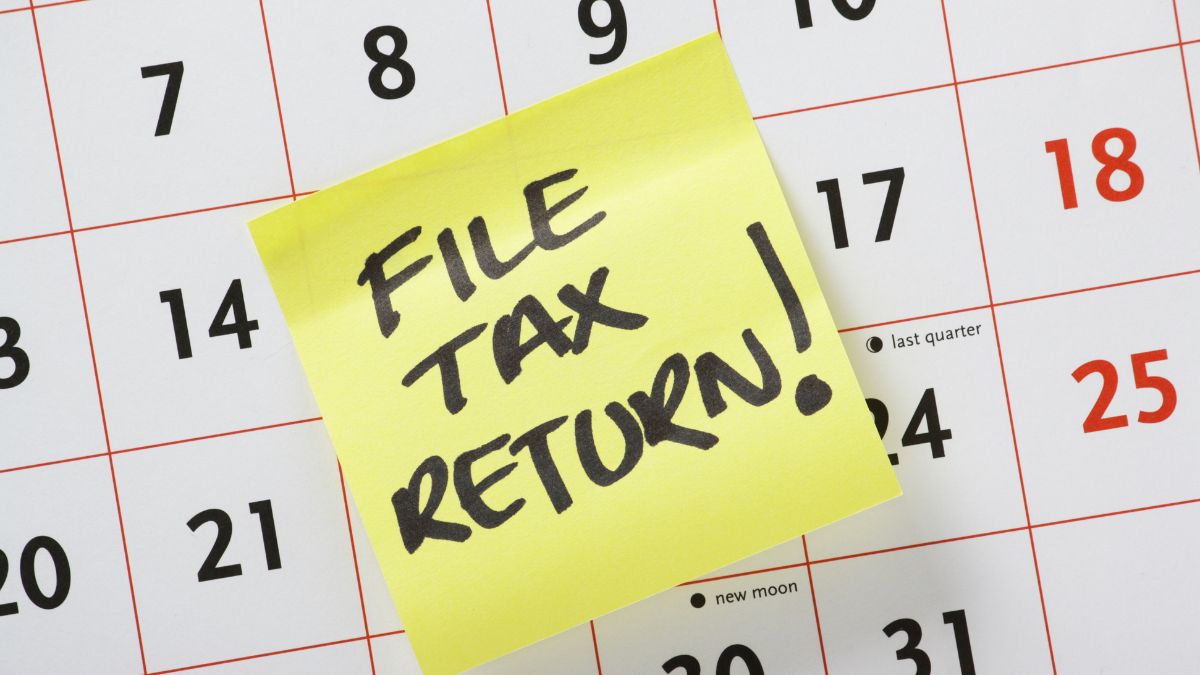Filing your personal and company income tax in Nigeria is a legal obligation for individuals who earn income within the country. In Nigeria, the tax system is administered by the Federal Inland Revenue Service (FIRS) at the federal level and the State Internal Revenue Services (SIRS) at the state level. Every responsible income-earning individual or business knows that tax evasion/tax avoidance is an offence before the law and carries stiff penalties, hence the need for proper filing of tax returns. Continue reading to find out how to file your tax returns in Nigeria.
What Are the Taxes Paid in the Nigerian Tax System?
Before diving into the filing process, it is important to understand Nigeria’s tax system. The major types of taxes in Nigeria include:
Personal Income Tax Returns
This tax is levied on individuals’ income, including salaries, wages, bonuses, and other forms of income.
Company Income Tax Returns
Companies operating in Nigeria are subject to this tax on their profits.
Value Added Tax (VAT)
VAT is imposed on the supply of goods and services and is borne by consumers.
Withholding Tax
This tax is deducted at source from payments made to individuals or companies for goods and services rendered.
What is Filing of Returns?
Filing is the submission of tax returns by a taxpayer to the relevant Tax Authority in a manner prescribed by law and in accordance with the laid down administrative procedure.
What is Tax Returns?
A tax return(s) is a report prepared by a taxpayer containing information on his tax affairs for a given period for the purpose of complying with the tax laws.
A. Company Income Tax Returns
In Nigeria, even if a business is legally exempt from paying taxes, it is still necessary for them to file returns with FIRS.
Such returns must be filed by newly incorporated companies within eighteen (18) months of incorporation or at most six (6) months after the end of the accounting year, whichever comes first.
The returns for both new and old businesses must be submitted by six (6) months following the end of the accounting year.
Items Included in a Company’s Income Tax Returns
Due to the progressive adoption of International Financial Reporting Standards starting from January 2013, there will be a progressive adoption of International Financial Reporting Standards; the following are the contents of the returns that need to be filed:
1. A completed Self-Assessment form.
2. An audited financial statement that includes:
- A balance sheet that shows the financial position
- A profit and loss account that shows the comprehensive income
- A statement of changes in equity.
- A statement that shows the cash flows.
- Important Accounting Policy notes and other clarifying details.
- Comparison numbers from the previous year were calculated using Generally Accepted Accounting Principles (GAAP), which will be appended to the returns.
3. Tax summation.
4. Capital allowances summation
5. Fixed Asset Schedule
6. Proof that the necessary taxes have been paid.
Two Directors shall sign the Audited Financial Statement.
External Auditors, who must be members of a recognized professional body, should audit and sign the accounts.
Deadline for submitting company income tax returns
1) Within six (6) months following the conclusion of the company’s fiscal year, if the company is an established one.
2) If the company is newly founded, within six (6) months following the conclusion of its first accounting period or within eighteen (18) months of the date of formation, whichever is earlier.
B. Personal Income Tax (PIT) Returns
(I) Self-employed Individuals
In this section, a self-employed person is defined as either an individual operating a profession, vocation, or personal business (often referred to as a single trader) or all the individuals operating a business in partnership (usually referred to as partners).
A self-employed person must submit their returns to the tax authority closest to where they live.
Income is taxed based on the previous year’s basis.
Personal Income Tax Return’s contents
1. Properly fill out the Self-Assessment form.
2. Properly filled out Income Tax Form (Form A): a statement of total income received from all sources over the previous year.
- Specifics of the person’s income, reliefs, deductions, and allowances;
- The taxed person’s declaration or attestation about the accuracy and completeness of the returns;
3. Proof that taxes have been paid.
Date of Submission for Individual Income Tax Returns
The deadline for filing a personal income tax return is March 31st of the assessment year.
(II) Individuals in Employment’s Personal Income Tax Returns
Individuals with jobs pay their personal income tax through the Pay As You Earn (PAYE) system.
For these people, income is taxed on an actual basis, which implies that money generated during a given year is taxed that same year.
The information on tax returns is the same as it is for self-employed people, with the exception that the taxpayer must report:
Related Articles:
• Income from employment from all sources in the previous year; and
• Income from all sources of employment in the current year.
Employers must record the personal income tax withheld from their workers’ employment income under the PAYE system in a monthly return submitted to the Tax Authority.
Using the appropriate schedule, PAYE returns must be submitted for each month by the tenth day of the month following the month to which the tax deductions pertain.
(III) Employers’ Annual Returns
Employers must submit yearly returns detailing the PAYE deductions they made from each employee’s income over the previous year.
Contents of Annual Returns
1. Form A, which is the Income Tax Form for Returns of Income and Claims for Allowances and Relief, completed
2. Annual Income Declaration: Form H1
3. A tax deduction schedule from the employer that includes the following details:
- Employer name
- Employer’s Taxpayer Identification Number (TIN)
- Employees’ names
- Employee’s Taxpayer Identification Number (TIN)
- Total compensation for every worker
- Consolidated Relief
- Tax deductions
- Total amount of tax collected and sent
4. Proof of tax payment
Deadline for Filing of Annual Returns by Employers
It is mandatory for all employers to submit a return by January 31st of each year.
C. Returns for Value-Added Tax (VAT)
Each month, all taxable individuals must submit VAT returns to FIRS.
Items Included in the VAT Returns
A correctly filled-out VAT form 002 with the following information:
- The entire amount of supplies made during the time period
- The amount of output tax disclosed on its invoices
- The total value of purchases for which input tax was paid
- The input and output tax schedules are linked to the VAT returns and any modifications made for bad debts, credit notes, etc.
- A signed statement attesting to the accuracy and completeness of the returns.
Date of Submission for VAT Returns
The VAT returns have to be submitted by the 21st of the month that follows the month in which the transaction was made, at the latest.
All MDAs and Oil & Gas Companies are obliged to complete monthly returns using the relevant schedule by the 21st day of the month following the transaction, in addition to their dual obligations as VAT payers and withholding agents.
D. Withholding Tax (WHT) Returns
The persons and bodies who are obligated to deduct and remit Withholding Tax must file withholding tax returns with the appropriate Tax Authority.
- The Federal Inland Revenue Service is the relevant Tax Authority in the case of withholding tax deducted from payments owed to all limited liability firms (FIRS).
- FIRS is the pertinent Tax Authority for people and unincorporated organizations operating in Abuja’s Federal Capital Territory (FCT).
- FIRS is the applicable Tax Authority for non-resident persons and corporations.
- If withholding tax is deducted from payments due to persons and unincorporated businesses located outside the Federal Capital Territory, the returns must be submitted to the relevant State’s tax authority where the person subject to the withholding tax resides.
Contents of the WHT Returns
- A schedule of withholding tax deducted that includes the period covered, the amount of tax deducted, the type of supply, the gross amount, the withholding tax rate, the amount of tax deducted, and the name, address, and Taxpayer Identification Number (TIN) of each supplier (beneficiary).
- Proof of payment.
Date of Submission for WHT Returns
Withholding tax returns for businesses other than petroleum corporations must be submitted within twenty-one (21) days of the day the amount was withheld, or the obligation to withhold arose.
Withholding tax returns must be filed within thirty (30) days of the day the amount was deducted, or the time the duty to deduct arose in all other cases, including Petroleum Companies.
General Guidelines for FIRS Personal and Company Income Tax Return Filing
1. Get the necessary returns form for FREE from any FIRS tax office.
2. Fill out the returns form with CAUTION and ACCURACY.
3. Ensure the form is properly SIGNED.
4. Fill out the applicable tax payment form (pay-in slip) at the authorized collecting bank CAREFULLY and CORRECTLY.
5. Verify the accuracy of your tax payment forms by crosschecking.
7. Retrieve the electronic ticket from the bank as proof of tax payment and check the information to make sure it is accurate and comprehensive.
8. Give the following paperwork to the FIRS tax office that deals with your tax issues:
I. The bank’s e-ticket, which serves as proof of tax payment;
ii. A properly filled-out return form;
iii. All necessary paperwork (where applicable).
9. Get the tax office’s TAX RECEIPT and MAKE SURE it was given appropriately.
10. To make sure there are no unpaid taxes, reconcile tax accounts with the tax office (if necessary).












This Post Has 0 Comments